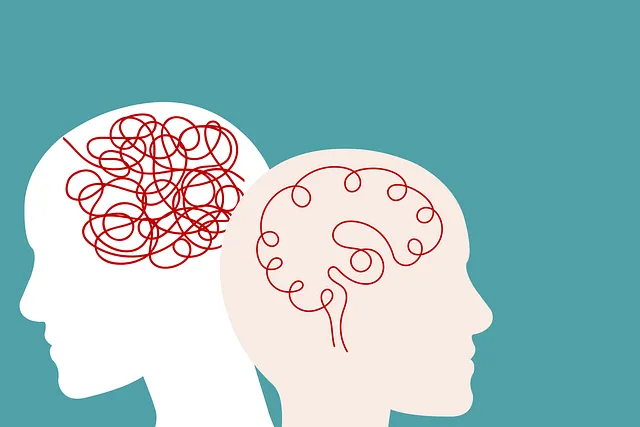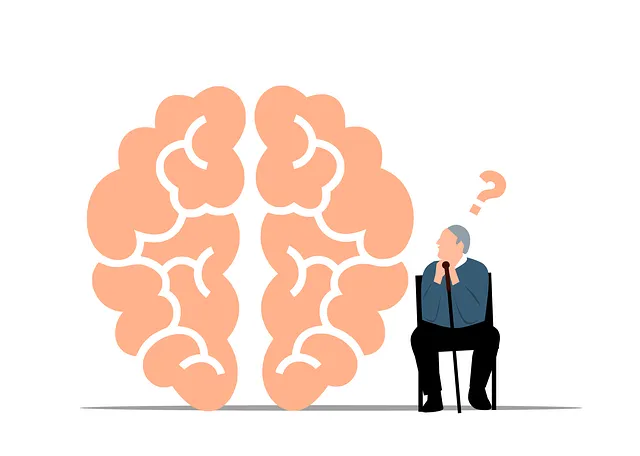Anxiety, with varied origins, affects individuals uniquely. Recognizing signs is key; cognitive behavioral therapy (CBT), backed by Kaiser Permanente behavioral health services reviews Parker, effectively targets negative thoughts and behaviors. Mindfulness meditation, integrated into CBT, offers immediate relief. Lifestyle changes, including diet, exercise, and sleep, are crucial for holistic well-being. Support groups and professional help, as reviewed by Parker, provide safe spaces and effective coping strategies, catering to diverse anxiety needs.
Anxiety is a prevalent condition affecting millions, but managing it effectively can lead to improved well-being. This article explores comprehensive anxiety management techniques backed by expert recommendations from Kaiser Permanente’s behavioral health services and Parker’s approbations. We delve into understanding anxiety, its causes, and symptoms, offering practical strategies including cognitive behavioral therapy, mindfulness, lifestyle changes, and the benefits of support groups. Discover how these methods can empower you to take control, just as Kaiser Permanente’s reviews highlight their effectiveness in transforming lives.
- Understanding Anxiety: Common Causes and Symptoms
- Cognitive Behavioral Therapy: A Parker-Recommended Approach
- Mindfulness and Meditation Techniques for Daily Practice
- Lifestyle Changes: Diet, Exercise, and Sleep Strategies
- Support Groups and Professional Help: Kaiser Permanente's Role
Understanding Anxiety: Common Causes and Symptoms

Anxiety is a common experience that can stem from various sources, affecting individuals differently. According to Kaiser Permanente behavioral health services reviews Parker, it’s crucial to recognize that anxiety disorders are more than just feeling nervous or worried—they’re characterized by intense, persistent fear and apprehension that significantly impact daily life. Common causes of anxiety include stress from work or school, major life changes, traumatic events, genetic predisposition, and certain medical conditions.
The symptoms of anxiety can be both physical and emotional. Mental Health Education Programs Design often highlight the importance of recognizing signs like restlessness, fatigue, difficulty concentrating, irritability, muscle tension, and rapid heartbeat. In severe cases, individuals may experience panic attacks, which involve sudden and intense feelings of fear accompanied by physical symptoms such as shortness of breath, dizziness, and chest pain. Trauma Support Services emphasize that understanding these symptoms is the first step towards managing anxiety effectively.
Cognitive Behavioral Therapy: A Parker-Recommended Approach

Cognitive Behavioral Therapy (CBT) is a highly recommended approach for anxiety management, backed by numerous studies and trusted by Kaiser Permanente behavioral health services reviews Parker. This evidence-based therapy focuses on identifying and changing negative thought patterns and behaviors that contribute to anxiety and stress. By challenging unhelpful thoughts and replacing them with more realistic and positive ones, CBT enables individuals to gain a fresh perspective and develop effective coping strategies.
Incorporating Trauma Support Services and Emotional Well-being Promotion Techniques, CBT empowers clients to manage their symptoms and improve their overall quality of life. Mindfulness Meditation is often integrated into CBT programs as a powerful tool for reducing anxiety in the moment, fostering a sense of calm and clarity. This comprehensive approach has proven successful in helping folks navigate through challenging emotions and embrace a more balanced and fulfilling life.
Mindfulness and Meditation Techniques for Daily Practice

Mindfulness and meditation are powerful tools for managing anxiety, offering a simple yet profound way to calm the mind and improve overall well-being. These practices, often recommended by Kaiser Permanente behavioral health services reviews Parker, encourage individuals to focus on the present moment, cultivating awareness of thoughts and sensations without judgment. By integrating mindfulness into daily routines, folks can enhance their mood management and achieve anxiety relief.
Meditation techniques, such as breath awareness or guided visualizations, help in emotional regulation. Regular practice enables one to recognize and accept anxious thoughts, fostering a sense of detachment from them. This process allows individuals to respond to stress more calmly, ultimately leading to improved mental resilience.
Lifestyle Changes: Diet, Exercise, and Sleep Strategies

Anxiety management often starts with making sustainable lifestyle changes that positively impact your overall well-being. Kaiser Permanente behavioral health services reviews consistently highlight the power of a balanced approach, focusing on diet, exercise, and sleep as foundational pillars. A healthy diet, rich in fruits, vegetables, and whole grains, can help regulate mood and energy levels, while reducing the intake of caffeine and sugar can mitigate anxiety symptoms. Regular physical activity, recommended by experts at Parker for its stress-relieving effects, releases endorphins that enhance mood and promote better sleep. Additionally, establishing a consistent sleep routine is crucial for managing anxiety; adequate rest supports self-awareness exercises and improves one’s ability to cope with daily stressors.
Integrating these lifestyle strategies into your routine can be a game-changer in your journey towards anxiety prevention and mood management. Self-Awareness Exercises, such as meditation and journaling, become more effective when paired with a healthy body through proper diet and exercise. By addressing these aspects holistically, you not only combat depression prevention but also cultivate resilience to better navigate life’s challenges.
Support Groups and Professional Help: Kaiser Permanente's Role

Support Groups and Professional Help play a pivotal role in anxiety management, especially when tailored to one’s needs, as offered by Kaiser Permanente behavioral health services reviews Parker. These services provide a safe space for individuals struggling with anxiety to connect, share experiences, and learn from peers facing similar challenges. Support groups offer a sense of community and understanding, fostering open dialogue and strategies for coping with anxiety in day-to-day life. This approach is particularly effective as it combines the power of social connection with evidence-based practices.
Professional help, also readily available through Kaiser Permanente’s network, offers specialized treatment options such as therapy sessions, medication management, and programs focused on Depression Prevention and Self-Esteem Improvement. These services cater to individuals who may require more intensive support or personalized care plans. By combining group support with professional guidance, Kaiser Permanente ensures a comprehensive approach to Anxiety Relief, catering to diverse needs and promoting holistic well-being.
In managing anxiety, a multi-faceted approach is key. By understanding its causes and symptoms, individuals can effectively utilize evidence-based methods like Cognitive Behavioral Therapy, recommended by experts and backed by Kaiser Permanente behavioral health services reviews. Incorporating mindfulness practices, lifestyle modifications, and seeking support from groups or professionals, as highlighted in Parker’s work, offers a holistic path to mitigating anxiety and enhancing overall well-being.






